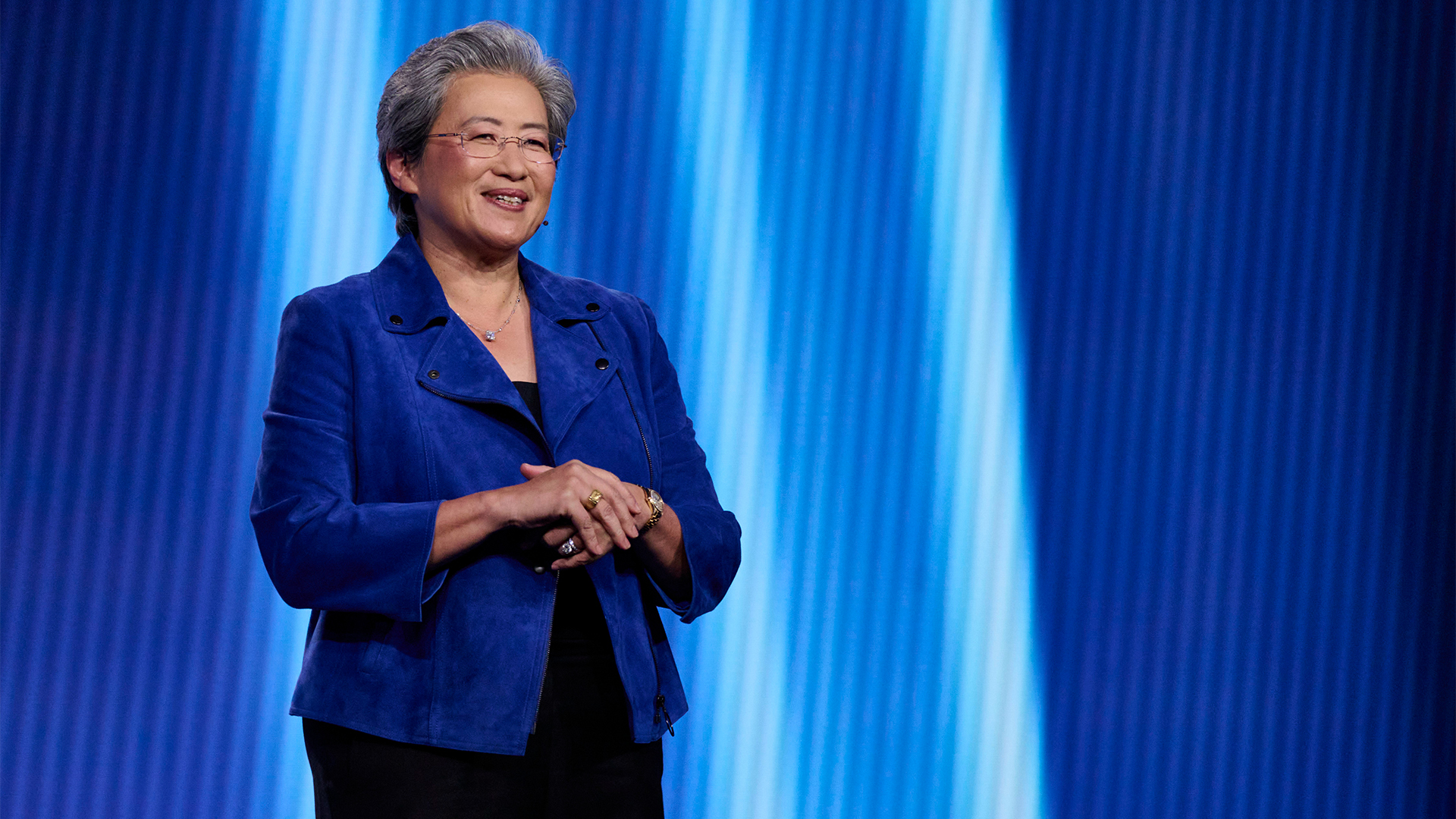Most businesses' recruitment efforts are failing neurodiverse candidates
While tech firms contend with talent shortages, they are missing out on a potentially lucrative pool of neurodiverse candidates


Less than a quarter of businesses specifically tailor their recruitment practices to accommodate neurodiverse candidates, according to a new study.
A survey of 500 senior and C-suite business leaders from Sparta Global found that firms could be missing out on a potentially lucrative talent pool by failing to cater for neurodiverse candidates.
Just 21% of respondents in the 2023 EqualTech report said they work for businesses that purposely cater their recruitment processes to attract neurodiverse talent.
The report warned 79% of organisations have taken “no steps to accommodate those with neurodiverse characteristics” - and this could have a significant long-term effect on their ability to attract talent and have a major negative impact on future success.
David Rai, chief executive at Sparta Global, said the report highlights a shocking lack of awareness among businesses over the potential benefits that a wider pool of potential candidates could offer given the current problems with the industry skills deficit.
“With the UK government reporting that we could face a shortage of 900,000 skilled IT workers by next year, an empowered neurodiverse community presents perspectives and skills that could be transformative,” he said.
“Despite this, I was shocked to see how few businesses have practically adapted their hiring strategies to support neurodiverse applicants.”
Sign up today and you will receive a free copy of our Future Focus 2025 report - the leading guidance on AI, cybersecurity and other IT challenges as per 700+ senior executives
Changing perceptions
While concerns remain over organisational approaches to hiring neurodiverse talent, the EqualTech report does highlight positive changes with regard to perception of neurodiversity in business.
87% of digital leaders surveyed said they believe neurodiversity will be a “top priority” for their company in 2023.
“This signals that digitally driven businesses are increasingly aware of the importance of neurodiversity, which is viewed as a strategic objective for equality, diversity, and inclusion,” the report noted.
Crucially, the report found, the COVID-19 pandemic brought to the fore internal discussions around neurodiversity at businesses spanning a range of industries.
More than half (54%) of respondents stated that the pandemic accelerated their organisation's internal conversations on the issue, as well as equality, diversity, and inclusion (EDI) strategies generally.
RELATED RESOURCE

This sharpened focus in recent years was largely driven by the shift to remote working and heightened awareness of employee wellbeing.
“The majority of businesses only started to strategise neurodiversity in the wake of the COVID-19 pandemic, when the shift to remote working prompted a renewed focus on employee wellbeing and different ways of working,” the report said.
“When we consider these responses collectively, we learn that neurodiversity is becoming a new focus area for digital inclusion and business recovery," the report read.
"This is a promising sign, as more tech employers are starting to pay attention to the role of neurodiversity as something that is integral for the success of their EDI objectives post COVID-19.”
Recruitment strategies for neurodiverse candidates
Dr Miriam Marra, co-lead for EDI at Henley Business School told IT Pro that accommodating for neurodiverse individuals in the workforce requires “HR-specific skills in recruiting, interviewing, and then handling the post-recruitment employee-employer relationship”.
Neurodiverse employees “typically need to be allowed to deviate from the established and standardised HR practices”, which poses some challenges in recruitment processes.
As such, she recommended that organisations put in place specific people, departments, or diversity strategies to ensure that marginalised demographics are catered for within the recruitment journey.
“For neurodiverse colleagues, settling can be difficult at times and may require extra work or differentiated work patterns such as the use of coaching sessions, mentoring, and arrangement of flexible work patterns,” Marra said.
“Thus, there is the effective risk that these accommodating steps may be felt as preferential treatments. That is why a properly developed EDI culture is needed within the company.”
Leadership also plays a key role in fostering an inclusive environment for neurodiverse candidates, Marra noted.
Business leaders should be encouraged to improve soft skills and acquire a “deeper knowledge and understanding of their employees” and specific needs. Long-term, this will also have a broader positive effect on employee wellbeing across the breadth of the organisation,
“This is effectively an opportunity towards the development of a more emphatic leadership style,” she said.
“Once the manager feels the need to monitor the wellbeing of the neurodiverse employees and use communications more effectively to be able to reach out to them, he or she will monitor the wellbeing of the extended workforce and communicate with everyone more effectively.”

Ross Kelly is ITPro's News & Analysis Editor, responsible for leading the brand's news output and in-depth reporting on the latest stories from across the business technology landscape. Ross was previously a Staff Writer, during which time he developed a keen interest in cyber security, business leadership, and emerging technologies.
He graduated from Edinburgh Napier University in 2016 with a BA (Hons) in Journalism, and joined ITPro in 2022 after four years working in technology conference research.
For news pitches, you can contact Ross at ross.kelly@futurenet.com, or on Twitter and LinkedIn.
-
 Lisa Su says AI is changing AMD’s hiring strategy – but not for the reason you might think
Lisa Su says AI is changing AMD’s hiring strategy – but not for the reason you might thinkNews AMD CEO Lisa Su has revealed AI is directly influencing recruitment practices at the chip maker but, unlike some tech firms, it’s led to increased headcount.
-
 Keeper Security expands federal bench with latest senior hires
Keeper Security expands federal bench with latest senior hiresNews The security vendor has bolstered its federal team to support zero-trust access, operational execution, and government modernization efforts
-
 HackerOne eyes enterprise growth with double C-suite appointment
HackerOne eyes enterprise growth with double C-suite appointmentNews Seasoned industry executives Stephanie Furfaro and Stacy Leidwinger have joined the cyber security vendor’s executive team
-
 Enterprises are cutting back on entry-level roles for AI – and it's going to create a nightmarish future skills shortage
Enterprises are cutting back on entry-level roles for AI – and it's going to create a nightmarish future skills shortageNews AI is eating into graduate jobs, and that brings problems for the internal talent pipeline
-
 AI resume screening, recruiter chatbots, and ‘ghost jobs’ are causing havoc for struggling entry-level workers
AI resume screening, recruiter chatbots, and ‘ghost jobs’ are causing havoc for struggling entry-level workersNews A new report shows employers are cutting back on entry-level hiring, but expect things to improve eventually
-
 Workday snaps up AI-powered conversation recruitment platform, Paradox
Workday snaps up AI-powered conversation recruitment platform, ParadoxNews Workday will integrate Paradox’s AI-driven candidate experience agent to help deliver talent faster
-
 The Channel Recruiter and Nebula debut new global talent resourcing solution
The Channel Recruiter and Nebula debut new global talent resourcing solutionNews Tech Talent on Tap aims to provide channel firms with on-demand access to elite technical professionals from around the world
-
 Tech talent shortages mean firms are scrapping traditional recruitment strategies
Tech talent shortages mean firms are scrapping traditional recruitment strategiesNews With more than half of enterprise leaders worried about future skills shortages, many organizations are turning to a range of new techniques to expand potential talent pools.

